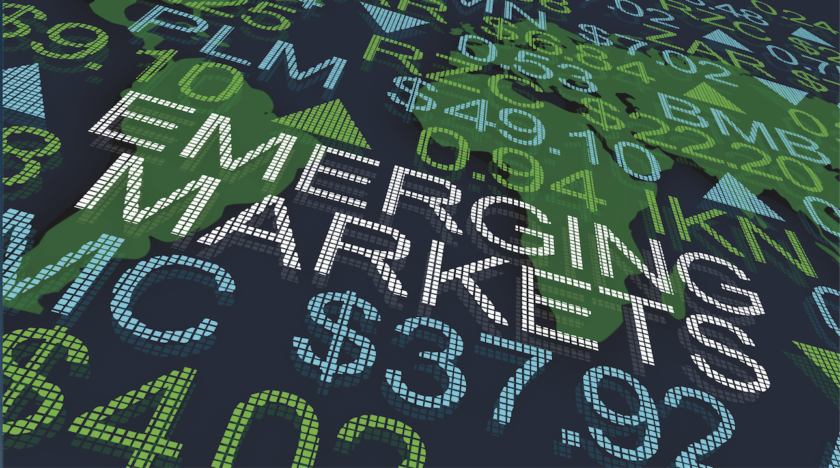Dated perceptions of emerging markets could be holding back investors from benefiting from markets which are very different to 10-15 years ago, argues Raheel Altaf is co-manager of the Artemis Emerging Markets Fund.
By any measure emerging market equities look cheap. Take the most common measure of price/earnings – the MSCI Emerging Markets Index is on a P/E of 14x, compared with the MSCI World Index on 20x.
Clearly, emerging markets have significantly underperformed global equities in the past decade, but over the longer term it is a different story. Since 2001 the MSCI Emerging Markets Index has generated an annualised return of 7.4%, compared with the MSCI World Index of 5.98%.
Stimulus in China and falling interest rates could see a return to form for the sector in 2024 and shares re-rate.
To my mind too many investors are underweight this unloved asset class. I believe these valuations and the dividends being generated mean it could be a good time to review that position. Emerging markets have evolved considerably in recent years. Many investors may not have noticed.
Emerged markets?
Fifteen years ago when I began working in this area, around 60% of the market was in commodities, materials and financials. Emerging markets were the mine of the world and its factories. Their economies were cyclical. When the US sneezed, Asia and Latin America caught pneumonia.
Today I would argue that you have a much more diverse group of companies and sectors in emerging markets – around 20% are technology stocks, and 15% consumer stocks. Energy and commodities make up just over 10% of the market.
Historically, investors preferred to enjoy exposure to fast-growing emerging economies through companies like Louis Vuitton, Diageo and Unilever – quality companies from the West with developed-market standards of governance.
Today, powerful brands are emerging within many emerging market countries. The top four Chinese phone manufacturers now sell more units in China than Apple. The Chinese car manufacturer BYD has just overtaken Tesla as the biggest global seller of electric vehicles – 64% of total EV production is now in China.
Emerging markets are home to some global behemoths. Korea’s Samsung is the world’s biggest manufacturer of smartphones. The rapid growth of AI will depend on the world producing enough high-quality chips. And TSMC – the Taiwan Semiconductor Manufacturing Company – is one of the most successful. The clue to its origins lies in its name, but it is now a multi-national and currently building a plant in Arizona.
In short, then, manufacturing quality has improved substantially. So has corporate governance. Meanwhile the economic growth of areas like Asia mean there is much less dependency on the US. So the best companies are less exposed to the vicissitudes of the US economy and therefore more robust.
We should also mention dividends. Tough experience has taught Asian managements to be conservative. We see little evidence of reckless expansion or M&A activity. Instead, we find lots of companies with strong balance sheets using their healthy cashflows to pay out dividends or for share buy backs – a sensible strategy when share prices are depressed. Ultimately, of course, share buybacks drive yields upwards, which is reflected in our own fund’s yield in 2023 of over 6%.
Opportunity in distress
The general perception of emerging markets is of higher risk. I have established that it is possible to find companies that look as strong as any in developed markets. But we should not ignore the rest of the market. Some of our best opportunities last year came from countries in distress.
Türkiye has been an outstanding equity market in the past three years. Inflation there has been well over 50% in this time; political risk and unconventional monetary policy have triggered further warning alerts. Yet, despite this, share prices have surged.
One of our best investments of the past three years has been Sinotrans in China – a logistics and freight company akin to DHL. At the time of our first investment the world was in lockdown, with no clear sign of when activity would resume. Since then the share price has risen over 50%. This includes the impact of dividends, which have generated over half of the return for shareholders. The broader Chinese equity market is down 25% in the same period. Distressed investing can lead to great outcomes for the patient and selective.
Reassurance
The message for investors is a positive one. The IA Global Emerging Market sector is a fifth of the size of the IA Global sector and yet emerging market countries account for at least 50% of global GDP and will drive global GDP growth in the coming decade.
This market has evolved. This is too big an opportunity set for investors to be excluding from their portfolios because of dated perceptions. There is a strong argument to be made that many countries defined as emerging markets deserve promotion out of that league. Even within countries that most of us would consider still emerging – and maybe even in distress – there are outstanding opportunities for the smart investor.
Fund manager image: onEdition






























